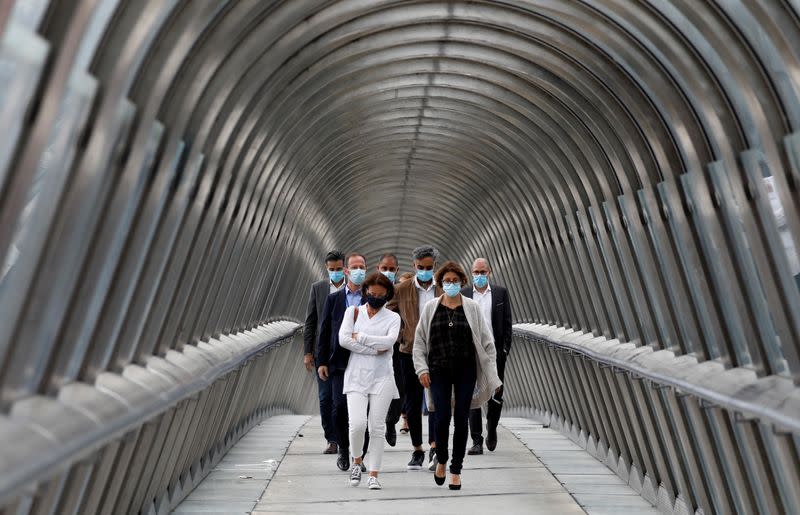Gender pay gap narrows only marginally in Europe
BRUSSELS (Reuters) - The pay gap between men and women doing the same job in Europe narrowed only marginally this year, the European Commission said on Friday, even though a vast majority of EU citizens support eliminating that difference.
A woman doing the same job as a man is still getting 14.1% less money for it, a small improvement on the 14.5% last year.
"Women are not equally valued for their work. They still earn on average 86 cents for every euro a man earns across Europe. Women thus work 51 days more to earn the same as their male colleagues," the Commission said in a statement.
"At the current rate, it would take decades, or even centuries, to achieve equality. This is not acceptable, we must accelerate and reduce this pay gap to zero," it said.
The Commission said the smaller pay for women was the result of inequalities throughout life as women enter the labour market and progress in careers while trying to balance work and family.
"The pandemic has exacerbated these structural gender inequalities and the risk of poverty," the Commission said.
"Women are over-represented in frontline low-paid jobs providing the most basic and essential community services. They are also disproportionately present in informal jobs that are not covered by social protection systems," it said.
The Commission is to propose binding measures on pay transparency in the next few weeks. It said adequate minimum wages, for which the Commission has proposed common EU rules, could help, because more women than men earn a minimum wage.
The Commission said 9 out of 10 Europeans thought it was unacceptable that women were paid less than men for the same job of equal value and that 64% of European workers backed pay transparency through the publication of average wages by job type and gender at their company.
(Reporting by Jan Strupczewski; Editing by Chizu Nomiyama)

 Yahoo Finance
Yahoo Finance 

